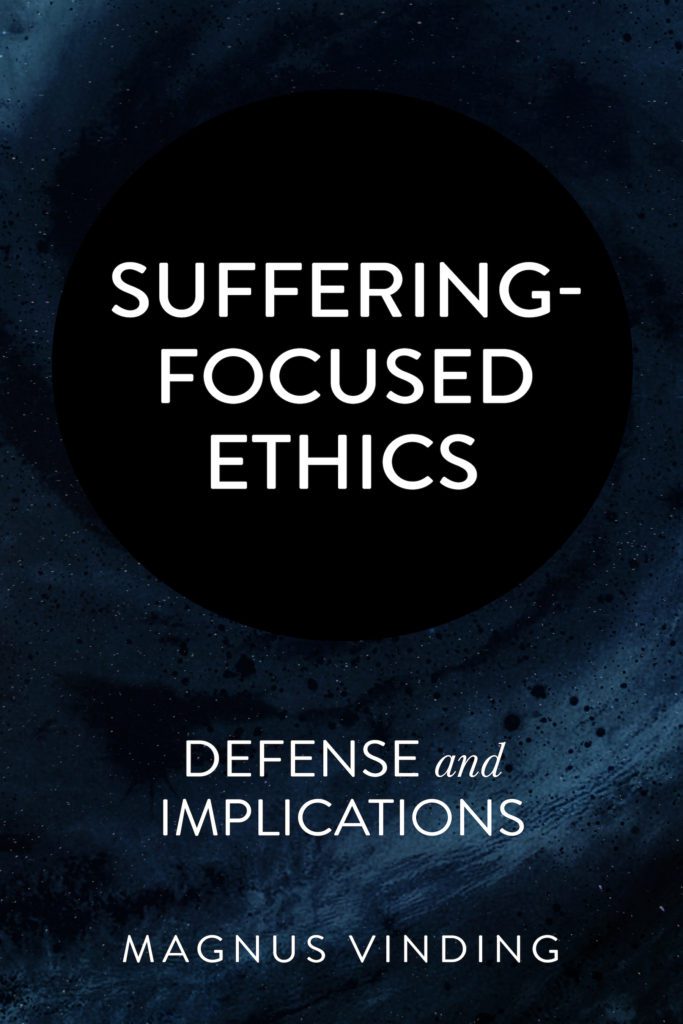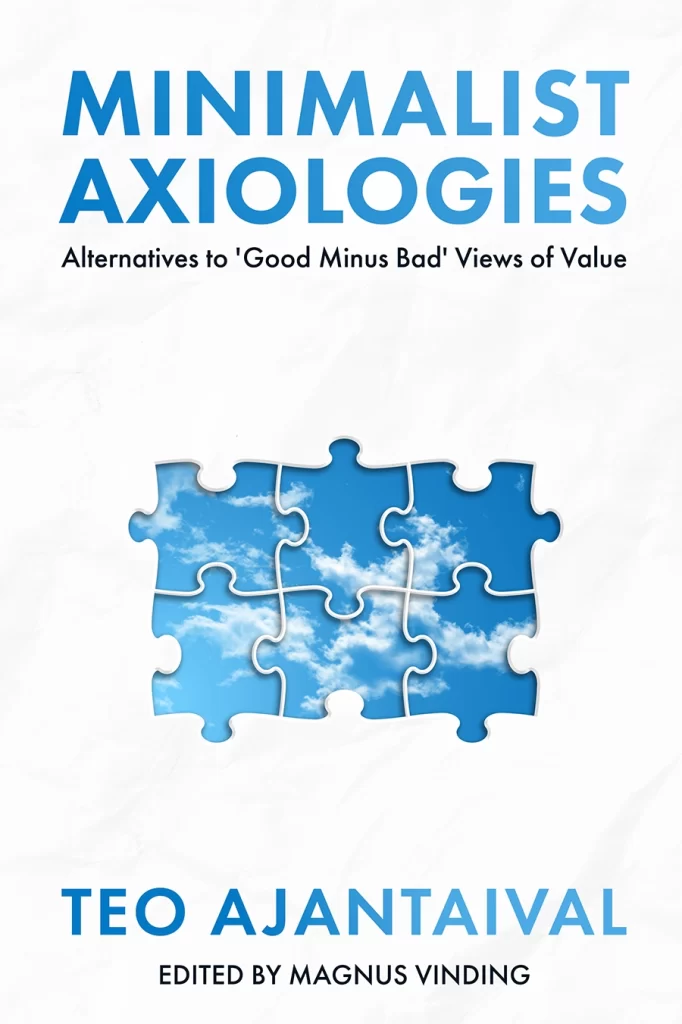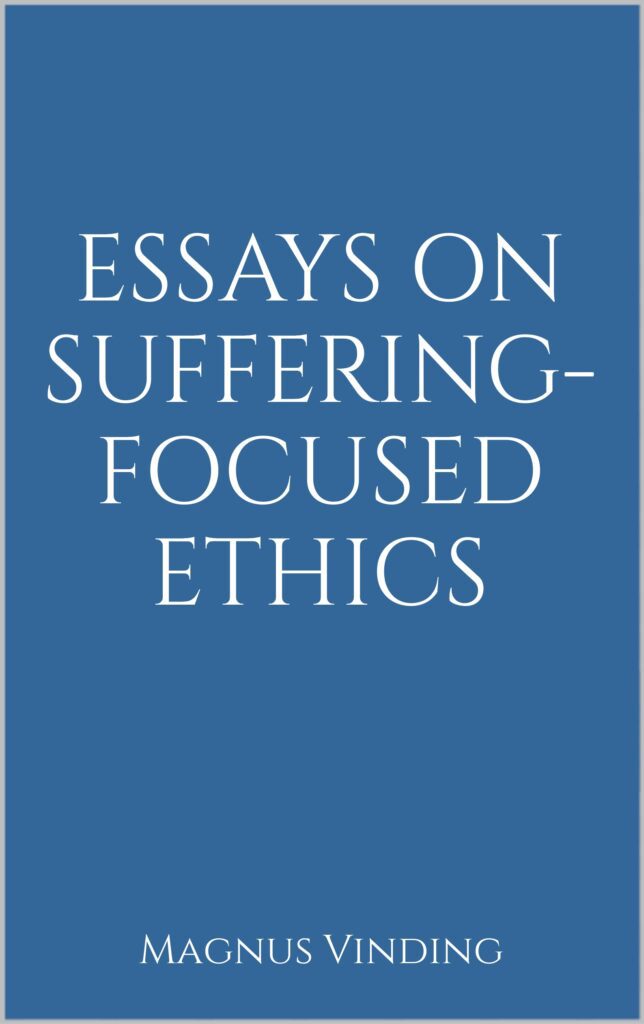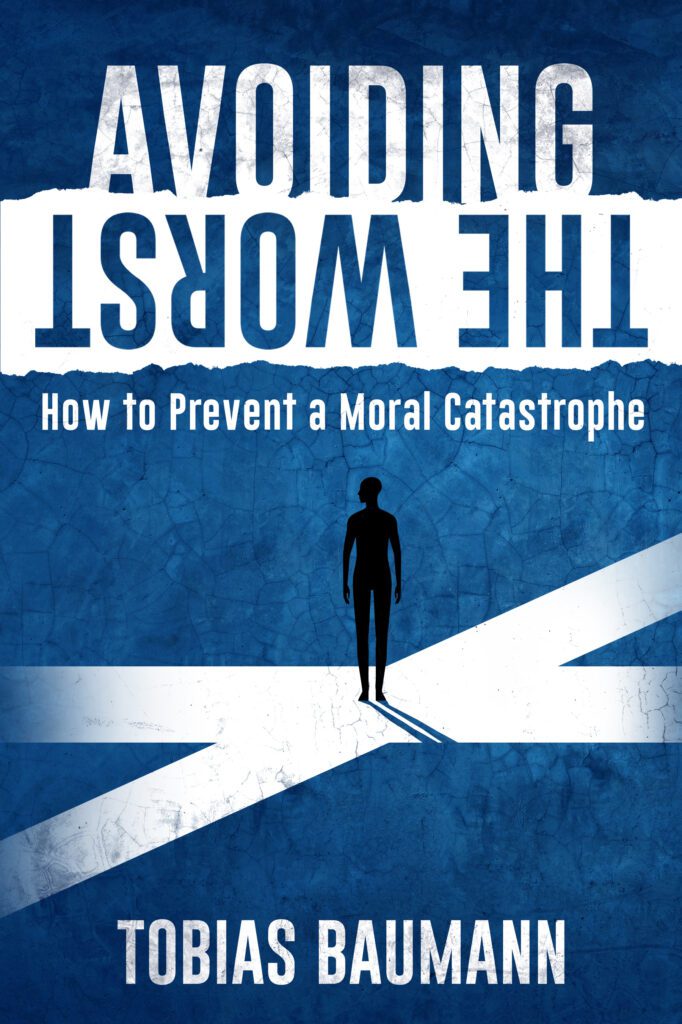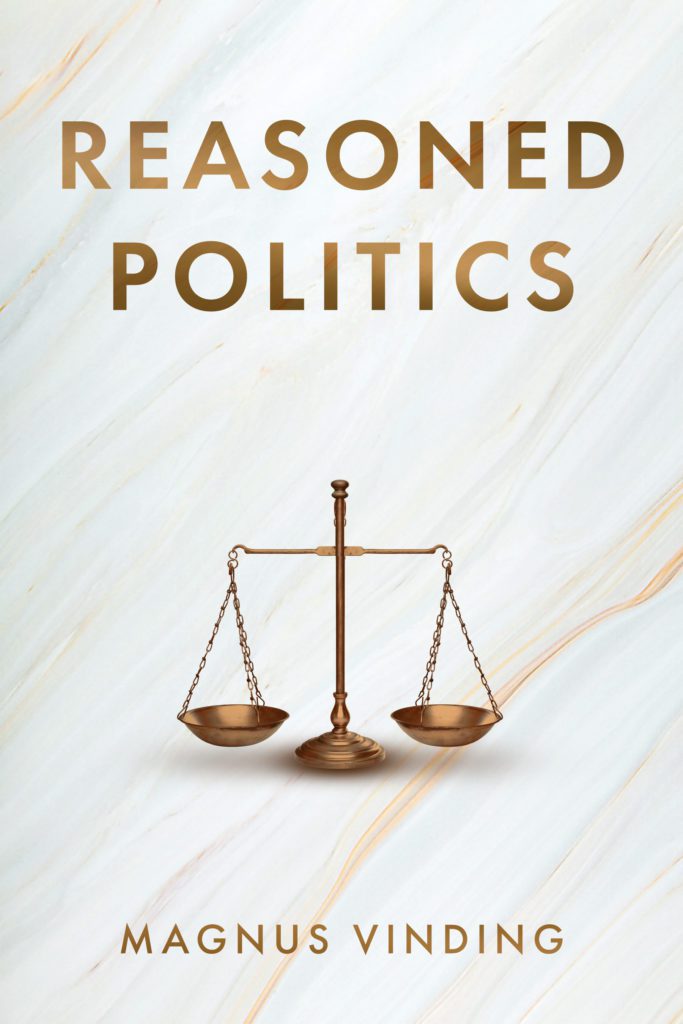Suffering-focused ethics
Introduction to suffering-focused ethics
Simon Knutsson and Magnus Vinding
This text is a general introduction to suffering-focused ethics. It describes different types of suffering-focused ethical views and explains some of the reasons why the authors find suffering-focused views reasonable.
Suffering-Focused Ethics: Defense and Implications
Magnus Vinding
In Suffering-Focused Ethics, Magnus Vinding argues that the reduction of suffering deserves special priority, and explores how we can best reduce suffering in practice.
S-Risks
S-risks: An introduction
Tobias Baumann
Future technology will likely endow humanity with unprecedented power, potentially allowing us to shape the entire universe. But if this newfound power is used irresponsibly, it may lead to suffering on an astronomical scale. Such risks of astronomical suffering are also called suffering risks or s-risks for short. While such scenarios may seem far-fetched at first, we have good reasons to believe that their probability is not negligible. People who want to help others as effectively as possible should, therefore, consider reducing s-risks a top priority – especially if they perceive them to be important on moral grounds or neglected in practice.
Avoiding the Worst: How to Prevent a Moral Catastrophe
Tobias Baumann
In this book, Tobias Baumann lays out the concept of risks of future suffering (s-risks), and argues that we have strong reasons to consider their reduction a top priority.
Better Politics
Reasoned Politics
Magnus Vinding
In Reasoned Politics, Magnus Vinding outlines a path toward better politics, and investigates which policies seem most helpful for alleviating severe suffering.
Macrostrategy
Is most expected suffering due to worst-case outcomes?
Tobias Baumann
For those interested in reducing future suffering, a natural question to ask is: should we focus our efforts on preventing the worst outcomes? Or is (expected) future suffering distributed more broadly over a wide range of plausible futures? This is relevant because it determines the extent to which we accept “Pascalian” wagers about how the future could go very badly. If worst-case outcomes dominate, then it pays to think about specific scenarios and how to prevent them; if not, we should pursue robust strategies that are good over many or all scenarios. In this post, I will try to define the question more precisely, and give arguments for and against the hypothesis that extreme outcomes should dominate consequentialist calculations.
Why altruists should be cooperative
Magnus Vinding
There are many reasons to adopt a cooperative approach to altruism. A cooperative approach can enable positive-sum compromises, make people more willing to join our efforts, and promote collaboration with others toward shared ends. Last but not least, greater cooperation can help reduce some of the main risk factors for s-risks.
How the animal movement could do even more good
Tobias Baumann
The animal advocacy movement is doing a lot to help animals, and has enjoyed some level of success. Yet there is still substantial room for improvement to allow the movement to reach its full potential. To that end, we believe it is critical to be aware of biases that may distort our thinking, such as the tendency to keep doing what we have done so far simply because that’s what we are familiar with. In this post, we outline our suggestions for the animal movement and our vision of how it can develop to reduce animal suffering (even) more effectively.
Other Publications
- Common ground for longtermists
- Longtermism and animal advocacy
- Reasons to include insects in animal advocacy
- Arguments for and against moral advocacy
- Beware frictions from altruistic value differences
- Distrusting salience: Keeping unseen urgencies in mind
- Two contrasting models of “intelligence” and future growth
- Research vs. non-research work to improve the world: In defense of more research and reflection
Practical Recommendations
Career advice for reducing suffering
Tobias Baumann
In this post, we outline our thoughts on promising paths for those who wish to use their career to reduce suffering. What we do in our professional life is arguably our best opportunity to do good, far more so than other decisions such as consumption choices or voting (which is not to say that those are not also important). Choosing a high-impact career is therefore of critical importance for aspiring effective altruists.
Reducing Extreme Suffering in Healthy Ways
Magnus Vinding
In this chapter for his forthcoming book, Magnus Vinding explores healthy ways to reduce extreme suffering. The chapter covers issues such as dealing with uncertainty, handling Weltschmerz, and cultivating hope for compassionate impact.
Compassion for Others
Magnus Vinding
This text dives into the benefits of other-oriented compassion and explores ways to increase it.
Other Resources
- The case for suffering-focused ethics (Center on Long-Term Risk)
- Reasons to Promote Suffering-Focused Ethics (Brian Tomasik)
- Effective Altruism: How Can We Best Help Others? (Magnus Vinding)
- Reducing risks of astronomical suffering (David Althaus & Lukas Gloor)
- Artificial intelligence and its implications for future suffering (Brian Tomasik)
- Online course introducing wild animal suffering (Animal Ethics)
- Reducing Suffering Amongst Invertebrates Such As Insects (Simon Knutsson)
- Ethical analysis of purported risks and disasters involving suffering, extinction, or a lack of positive value (Simon Knutsson)
- Sentience Politics philosophy sequence
- Brian Tomasik: Essays on Reducing Suffering
- Magnus Vinding’s blog
- Tobias Baumann: Reducing Risks of Future Suffering
- Simon Knutsson’s writings on ethics

